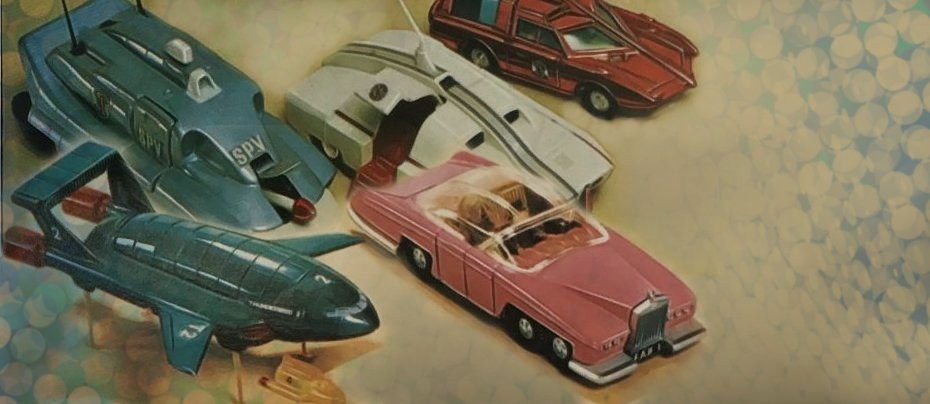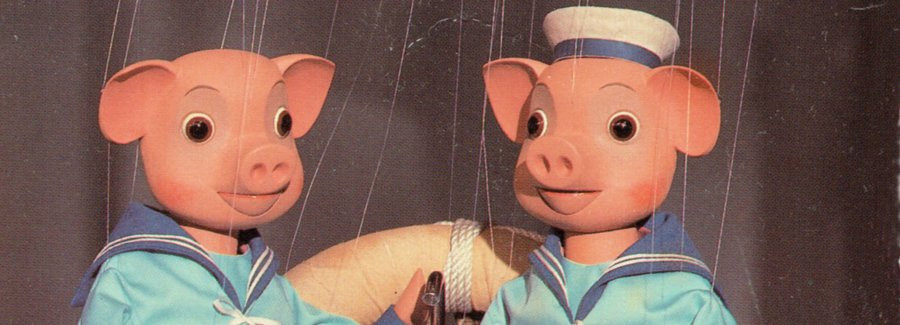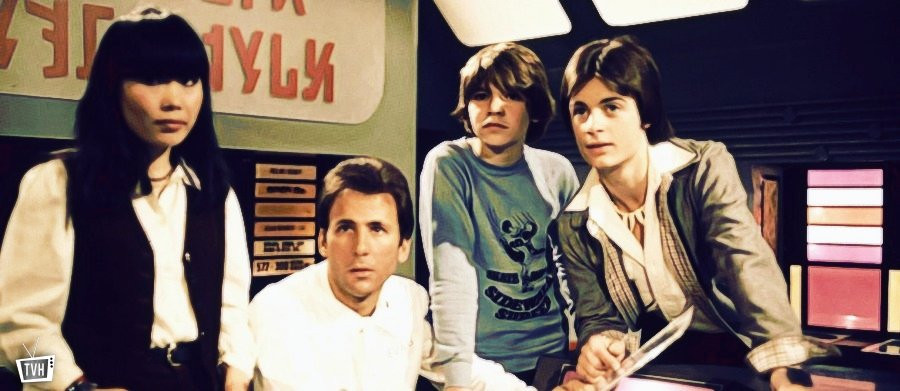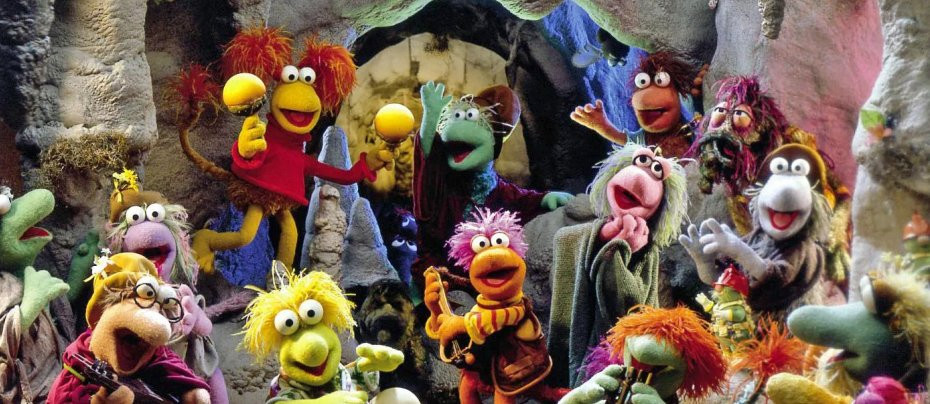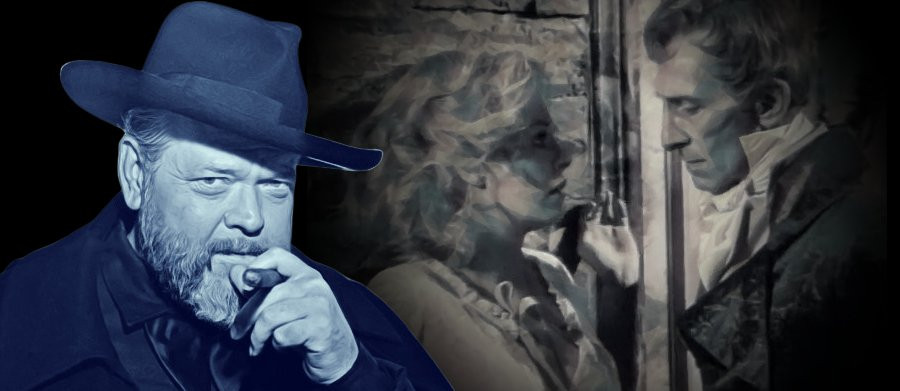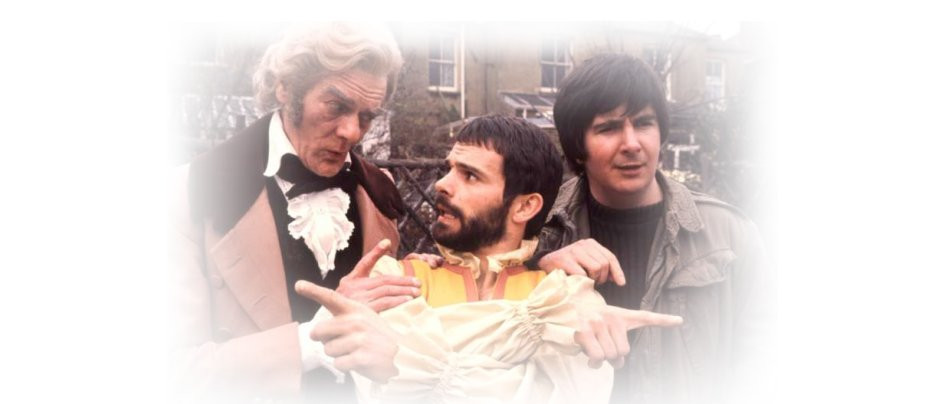
Pipkins
1973 - United KingdomAh, gather 'round, my fellow time-traveling telly enthusiasts! When Sesame Street waltzed onto UK screens in 1971, the Independent Broadcasting Authority decided it was high time for some good ol’ British alternatives. So, they summoned the mighty ITV companies and said, ‘Lads, let’s brew our own kiddie magic, minus the Yankee doodle dandy.’ And lo, from the creative cauldrons emerged Thames Television’s Rainbow, Yorkshire’s Mister Trimble, Granada’s Hickory House, and ATV’s pièce de résistance, Inigo Pipkin, featuring the indomitable Hartley Hare, the puppet with teeth like a picket fence and dreams as lofty as Big Ben. And guess what? Kids from the '70s still raise a carrot in salute to that buck-toothed legend!
It was the dawn of 1973, and as the New Year’s confetti settled, behold: Inigo Pipkin materialized on our screens like a puppet-shaped comet. Our leading man? None other than the venerable Inigo Pipkin himself—played by the illustrious George Woodbridge. Picture him: a cross between Geppetto and Dumbledore. His workshop? A mystical realm where felt and dreams collided.
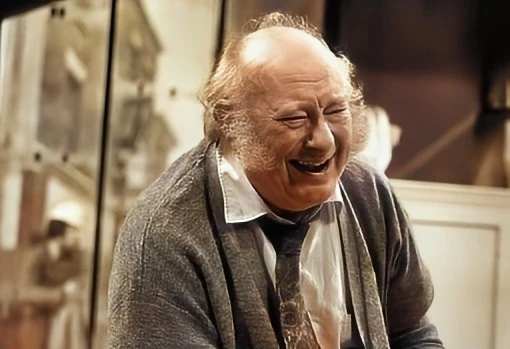
And what of his magical creations? Brace yourselves… After meeting Hartley Hare, the puppet with more sass than a caffeinated squirrel, we beheld Tortoise, who moved at a pace that made glaciers look like speed demons. Nigel Plaskitt (who also voiced Harley) lent him gravitas—because every tortoise needs gravitas.
But wait, there’s more! Topov the monkey, a cheeky simian with a penchant for banana peels and philosophical musings. And let’s not forget Pig, the porcine poet who rhymed bacon with forsaken. Lastly, the grand finale: Octavia the ostrich, whose neck was longer than a giraffe’s grocery list. Heather Tobias breathed life into this feathered diva. Together, they danced across our screens, weaving tales of felt, folly, and friendship. And as the credits rolled, we whispered, ‘Thank you, Inigo Pipkin, for making our childhoods more magical than a unicorn jamboree.’

In the delightful world of Pipkins, the characters flaunted accents as diverse as a fruit basket at a summer carnival. Pig oinked in a Birmingham brogue, while Topov the cheeky monkey chattered away in true Cockney rhyming slang. Octavia sported a French accent that made even the Eiffel Tower jealous, Pigeon; the epitome of sophistication, sipped tea with an Upper Class English accent, pinkie finger extended. Mrs. Penguin waddled about with a Geordie lilt, her flippers flapping like a seagull hunting for chips, Uncle Hare; the wise old bunny, hopped along with a West Country drawl, as if he’d just finished a cider tasting. Sophie the cat, ever the diplomat, spoke in a non-regional English accent, bridging the gap between feline and human. And last but not least, Moony the Badger, was snug in his burrow and grumbled in a Northern Ireland brogue.
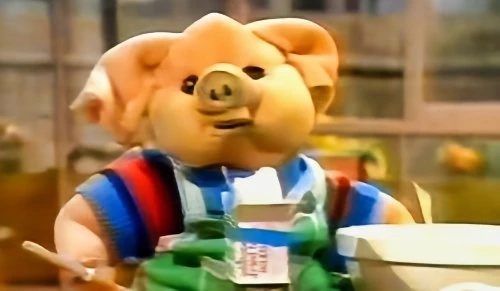
Jolly old Inigo, with a twinkle in his eye and a pair of scissors in his hand, presided over a workshop that defied the laws of tidiness, resembling a cross between a junkyard rave and a textile tornado. He wouldn't have been out of place in Steptoe's yard! Piles of discarded treasures—scraps of fabric and mismatched buttons formed the foundation of his puppetry empire. Hartley, the mischievous marionette, owed his existence to an abandoned jumper, its once-vibrant colours had faded like a forgotten rainbow, and moth holes peppered its sagging sleeves. But Inigo saw potential. Topov, the cheeky monkey, swung into being from an old lampshade, its fringed edges hanging round his neck like unruly fur. And so, in Inigo’s magical workshop, the puppets found their voices—each one a symphony of quirks, stitched memories, and a touch of the absurd.
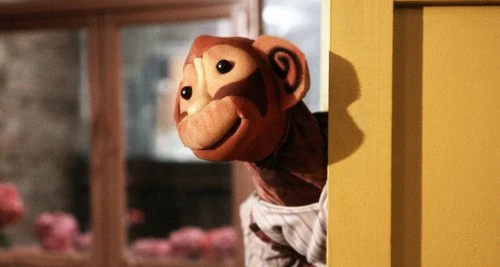
Tragically, halfway through the filming of the second series, George Woodbridge died of a heart attack. He was 66 years of age. Because the shows were filmed out of sequence, and Woodridge had only filmed two of the latter episodes, his absence was explained away as he had gone fishing. But when the series returned for its third run it was retitled to Pipkins (Inigo being dropped) and a whole episode was written about death. Nigel Plaskitt, talking at a TPTV event in March 2024, explained that the episode won favourable response from parents and children. “As far as I remember there was only one complaint.” The death of Inigo as a storyline predated the Mr Hooper episode on Sesame Street by nine years.
The programme’s focus shifted; henceforth, the show no longer revolved around a puppet workshop. Instead, the characters transformed into the ‘Help People,’ assisting anyone in need. In a similar vein, the episode titled Death of a Goldfish explored the topic of death, specifically addressing the loss of a pet. Topov the monkey and Johnny engaged in a discussion about the demise of the goldfish and the broader concept of human mortality and why people die.

Johnny was 22-year-old Wayne Laryea, best known to American audiences for his role as the bumblebee Harmony in The Bugaloos (1970). Johnny was the Pipkins funky assistant, the epitome of 70s, rocking flares wider than the M25, Afro hair, a reassuring voice and a superpower—turning cardboard and glue into legit masterpieces. Move over, Picasso! But here’s the kicker: he wasn’t just retro-cool; he was the kind of contemporary hero kids could look up to. Forget Spider-Man; Johnny was out there, saving the world one papier-mâché sculpture at a time.
Laryea left Pipkins in 1978 to star in the groundbreaking BBC series Waterloo Road and his replacement was Jonathan Kydd (as Tom). Kydd, the son of one of the world’s most prolific character actors, Sam Kydd, stayed for two years before moving on to pastures new, his place taken by Peter Potter (Paddy O'Hagan). In later years Sue Nicholls (Coronation Street) made regular appearances as the Pipkins' neighbour, Mrs Muddle.

In 1981, Pipkins tragically fell foul of the ITV reshuffle when ATV lost its franchise for the Midlands region, was restructured, and became Central Independent Television. Nigel Plaskitt felt that the new company was premature in cancelling it. "I think it was way ahead of its time. It had an edge to it that other shows lacked." The now familiar story of wiped episodes means out of a total of 333 episodes, only 135 have survived.
Pipkins remains a cherished memory, blending creativity, warmth, and regional diversity. Its endearing characters continue to evoke smiles and nostalgia, proving that in the world of puppets, magic thrives. And so, dear viewers, let us raise our imaginary teacups to this puppeteer par excellence! For when the clock indicated it was lunchtime, they pirouetted into existence, ready to entertain, bemuse, and perhaps—just perhaps—solve the world’s mysteries, one puppet show at a time.
Disclaimer: No actual puppets were harmed in the making of this whimsical review. Any resemblance to real-life puppetry workshops is purely coincidental.
Seen this show? How do you rate it?
Seen this show? How do you rate it?
Published on March 18th, 2024. Written by Pam Sue Teppert for Television Heaven.



